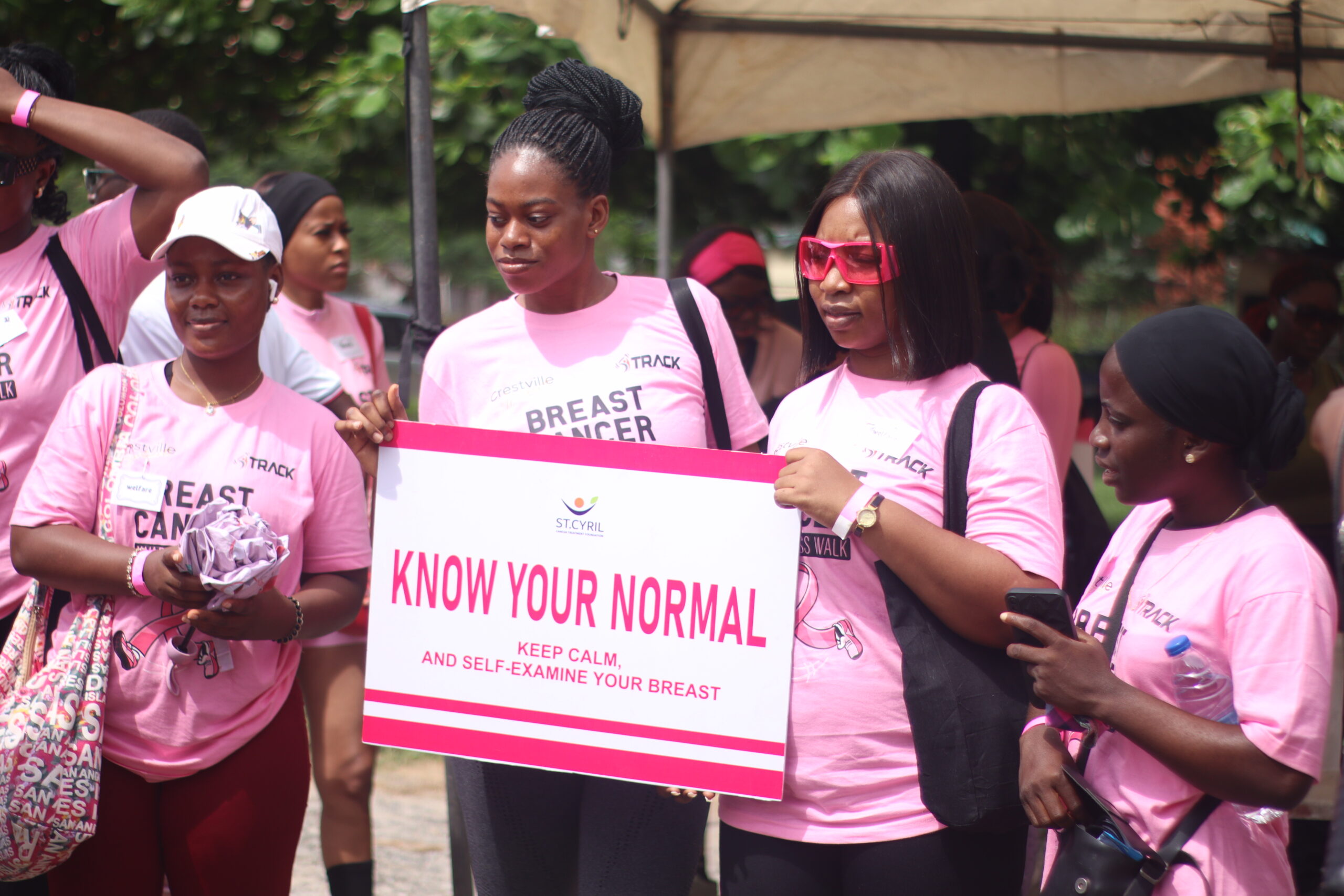Over the last two weeks, street campaigns sporting pink vests and banners have broken out across many cities in the country to commemorate breast cancer awareness month, globally celebrated every October.
Research indicates that the chances of surviving breast cancer if detected in the first year are nearly 69%, but by the fifth year, the survival rate falls by more than half, to 33%.
These campaigns host free screening sessions for the public in a bid to stem the rising incidence of breast cancer mortality in the country. More than 14,000 women in Nigeria died from breast cancer in 2020, according to the Global Cancer Observatory. This accounts for the highest number of cancer-related deaths in Africa.
Implicit in this alarming mortality rate are delayed diagnosis and limited treatment. Nigeria lacks a national programme for breast cancer screening, delaying prompt diagnosis.
Primary diagnostic tools like mammograms are severely restricted, concentrated mostly in major cities and tertiary hospitals.
Most hospitals in low-brow areas depend on the ultrasound, which is reported to have a markedly low specificity despite being highly sensitive. This burdens specialists like radiologists and oncologists with a high rate of false positives, ultimately delaying comprehensive diagnosis and treatment for true malignant cases.
Turning the tide on breast cancer
A growing number of experts are pushing for the adoption of artificial intelligence and machine learning as a strategic solution.
By processing copious amounts of medical data, AI-powered tools provide insights that can lead to faster and more accurate diagnoses.
Among the hurdles facing cancer care in Nigeria is the inadequate number of specialists. There are currently only 100 oncologists in the country, which means that those seeking care for recently diagnosed cancer could wait up to 3 months to be seen by a specialist.
In response, mobile-health platforms are helping to expand access to information and facilitate consultations. One is Oncopadi Digital Clinic, which is leveraging technology to connect patients with oncologists across Nigeria.
In a similar vein, the Mirai project is actively using AI to improve early detection and boost Nigeria’s survival rates.
This innovation is not unique to Nigeria alone. International collaborations are deploying AI to advance oncology across the continent. AstraZeneca’s Phakamisa initiative, for example, is exploring the potential of AI-driven diagnostics for breast and prostate cancer in Africa.
Chemotherapy, a periodic medical treatment that uses drugs to dial back the growth of cancer cells, is often recommended for most cancer patients.
However, less than 50% of patients complete their treatment regimens—an outcome that’s attributed to the pain and the steep costs associated with chemotherapy. AI can eliminate this barrier by bolstering patient trust and compliance with subsequent therapeutic plans.
The high cost of innovation
The high clinical potential of AI in Nigeria’s oncology landscape is, however, counteracted by a variety of challenges, notably its financial costs.
Acquiring AI-powered medical equipment, specialised software and infrastructure like cloud computing services and Graphics Processing Unit (GPUs) is prohibitively expensive for most healthcare facilities, which operate on limited budgets. AI systems require robust data storages and continuous updates, which involve heavy capital expenditure.
Another problem is the inadequate digital infrastructure within Nigerian healthcare facilities. Most hospitals and clinics still depend on fragmented, paper-based medical records where AI systems require large, high-quality datasets for training. It can be hard to aggregate necessary data for AI model deployment.
What’s more, many facilities in rural areas lack secure IT infrastructure, leaving patient data open to breaches and unauthorised access. Even if funding were available, this inadequacy would pose a high risk for adoption, as the expensive AI tools would operate on an insecure and fragmented data ecosystem.
Perhaps the single greatest risk confronting AI adoption in cancer care is the marked absence of a legal framework.
Nigeria currently lacks clear policies on AI governance, data protection, patient consent, and accountability for diagnostic errors or system failures. Without these safeguards, AI integration risks raising ethical dilemmas and legal disputes that could stall innovation altogether.
Despite these hurdles, the potential of AI in improving breast cancer outcomes is undeniable. From early detection and diagnostic accuracy to treatment personalisation and patient management, the technology could revolutionise how Nigeria approaches cancer care.
However, for these benefits to be fully realised, Nigeria must invest in digital health infrastructure, data security systems, and policy frameworks that prioritise patient safety and equitable access.
If the country can balance innovation with regulation, AI could help rewrite Nigeria’s harrowing story on breast cancer—from late diagnosis and despair to early detection and survival.
Summary not available at this time.






